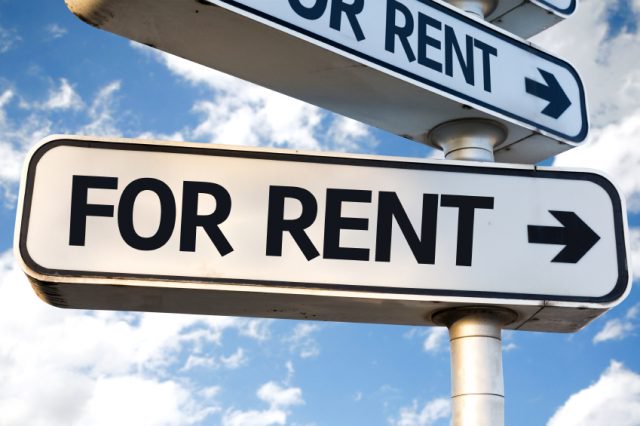A shortage of brick supply has contributed to sky-high house price growth over the last decade, as growing demand continues to exceed housing supply. A new report claims that a huge 1.4 billion bricks are needed to solve the UK’s housing crisis.
Although contractors are eager to build more homes following the Brexit vote, the UK’s construction industry would require a total of 1.4 billion bricks to help solve the housing shortage. This is the equivalent of the amount needed to build all of the homes in Leicestershire, reveals the Bricks Report from the National Association of Estate Agents (NAEA) and the Centre for Economics and Business Research (Cebr).
Growing demand
Between 2006-16, the expanding UK population triggered widespread growth in housing demand, which has now surpassed the number of homes being built. Given that in 2016, the average UK home is made up of 5,180 bricks, resolving the shortage of 264,000 units would require 1.4 billion bricks.

A Whopping 1.4 Billion Bricks are Needed to Solve the Housing Crisis
Although house prices are affected by numerous factors, the balance of supply and demand of homes fundamentally drives them. The UK’s housing shortage has caused sharp house price growth and prevented many hopeful buyers from getting onto the property ladder.
What the bricks could build
The 1.4 billion bricks deficit could, in theory, build some of the UK’s most famous landmarks several times over, including:
- 740 Big Bens
- 40 Tower Bridges
- 3,090 Manchester Town Halls
- 4,540 Warwick Castles
- 5,830 Conwy Castles
Brexit bricks
The NAEA and Cebr believe that the Brexit vote could significantly worsen the bricks deficit. In 2015, 85% of all imported clay and cement – the primary brick components – came from the EU. Depending on how trade negotiations develop, Brexit could have a considerable impact on supply.
The extent of the shortage
Brick stock steadily declined between 2008-13, and only partially recovered in 2014 and 2015. Two-thirds of small and medium-sized construction firms faced a two-month wait for new brick orders last year, while almost a quarter had to wait up to four months. Additionally, one in six (16%) were forced to wait six to eight months. The report claims that this can partially be put down to a slowdown in building following the recession.
Shrinking homes
Over the past 100 years, the average size of a UK home has shrunk significantly. In the 1920s, the average home was 153m2. Almost 100 years later, in 2016, the average property is around half the size, at 83m2 , meaning that homes have shrunk by 46% in the last century. Although this is partly a result of decreasing family size, it can also be put down to financial restrictions. As house price have risen exceptionally over the past ten years, by 45%, homebuyers have been forced to settle for smaller properties.
In the last decade, the average UK home has shrunk by 9%, or 228 bricks. In 2006, a typical property was 91m2 in size and required a total of 5,408 bricks. Now, the average home requires only 5,180 bricks – but there are still not enough to meet demand.
The Managing Director of the NAEA, Mark Hayward, says: “We all know that the massive lack of supply in housing is an issue that needs resolving urgently. As well as freeing up more land to ensure we can build the right sort of houses in the right places, it’s crucial we have the right materials and skills to do so. It seems a simple consideration, but the fact that we don’t have enough bricks to meet demand has a very real effect and holds up the process from beginning to end. We’re concerned that the impact of the EU referendum means this problem could get worse, as we rely on the import of brick components from the EU, and of course, many of our skilled labourers come from there too.”
Skills shortage
Alongside the bricks deficit, a skills shortage in the UK has also restricted housebuilding, as construction-based jobs are declining in popularity. This is a result of housebuilding slowing down during the recession, causing workers to find alternative careers and many choosing not to return when the market recovered.
The recent vote to leave the EU may also impose restrictions on foreign workers coming to the UK, which would also affect the UK’s ability to build more homes. Additionally, fewer young people are completing the training necessary to fill roles in the field, so trade bodies are now calling on the Government to make construction apprenticeships more attractive, through incentives.
Hayward concludes: “The UK housing market is in crisis, with young buyers unable to get on the ladder and families continuing to live in houses they’ve out-grown for longer than traditionally they would have had to. Houses may be getting smaller, but we are needing to build more of them than ever, so ultimately, our need for bricks is greater than before. We need investment in the sector to boost production, and housebuilding needs an image overhaul to become a more attractive career prospect for school leavers and graduates.
“Until this is addressed, we might as well resign ourselves to a lifetime of astronomical prices and falling levels of homeownership.”






